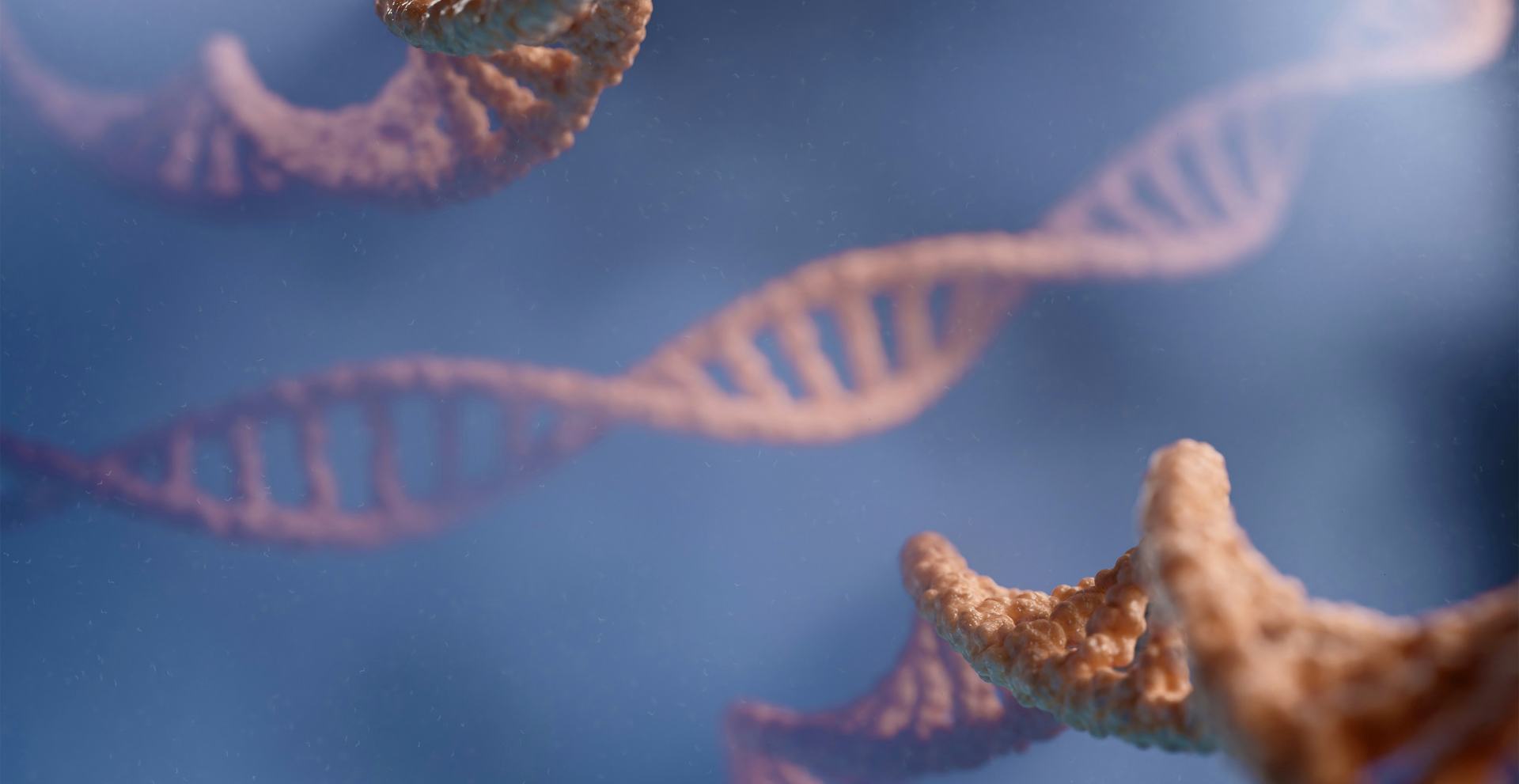Helping Pregnant Women With Depression Using TMS Therapy
During pregnancy, the mother's and baby's well-being is of utmost importance. But for some expectant mothers, the joyous anticipation of childbirth can be overshadowed by the dark cloud of depression.
Depression during pregnancy affects approximately 10% of pregnant individuals, posing significant challenges to maternal health and fetal development. Addressing depression during this crucial period isn't just about the mother's mental health; it's about nurturing a healthy environment for the growing life within.
Unfortunately, traditional treatment options like antidepressants or other medications may not always be suitable or safe during pregnancy, leaving many women feeling like they're out of options.
But Transcranial Magnetic Stimulation (TMS) offers hope. It's a safe and effective treatment for pregnant women battling depression. No medication required.
In this blog, we'll dig deeper into maternal depression, the limitations of traditional treatments and explore why TMS can be a safer, more effective option for expecting mothers.
Understanding Depression During Pregnancy
The hormonal shifts, physical changes, and emotional upheavals that accompany pregnancy create a fertile ground for the emergence of depressive symptoms. From feelings of sadness and hopelessness to anxiety and irritability, depression during pregnancy manifests in various forms, casting a shadow over what should be a time of joy and anticipation.
Research demonstrates a correlation between maternal depression and adverse outcomes for both mother and baby. Untreated depression increases the risk of pregnancy complications, such as preterm birth, low birth weight, and preeclampsia. It can also hinder maternal-infant bonding, leading to long-term consequences for the child's emotional and cognitive development.
Left unchecked, depression during pregnancy can cast a pervasive shadow over the entire family unit, perpetuating cycles of emotional distress and relational strain.
Postpartum Depression: Depressive Symptoms After Birth
Postpartum depression is a prevalent condition among mothers, often characterized by various symptoms that significantly impact women's mental well-being following childbirth. These symptoms may include feelings of loss of control over one's life, intense sadness, hopelessness, difficulty making decisions, and episodes of panic attacks and severe anxiety. Affected mothers may also struggle with caring for their newborns.
A consequence of depression during pregnancy and postpartum is its potential to disrupt the mother-child relationship, leading to long-term challenges if the bond fails to form adequately.
Promptly addressing depression during pregnancy mitigates the risk of postpartum depression and attachment issues with children, alleviating broader mental health implications.
Limitations of Traditional Treatment Options
When it comes to addressing depression during pregnancy, conventional treatment options primarily revolve around psychotherapy and pharmacotherapy. Psychotherapy offers a safe and non-invasive approach to managing depressive symptoms by helping individuals explore and navigate their thoughts, emotions, and behaviors.
On the other hand, pharmacotherapy, often involving the use of selective serotonin reuptake inhibitors (SSRIs), aims to rebalance neurotransmitter levels in the brain to alleviate symptoms of depression.
While psychotherapy and pharmacotherapy have proven efficacy in treating depression, they also come with their own set of limitations and concerns, particularly when it comes to pregnant women. Many expectant mothers hesitate to pursue pharmacological interventions due to potential risks to fetal development, including fears of congenital disabilities, preterm birth, and withdrawal symptoms in newborns.
Additionally, psychotherapy may not always provide rapid relief for severe or acute symptoms, leaving some women feeling overwhelmed and unsupported during a vulnerable time in their lives.
Introducing a Safer Alternative: What is Transcranial Magnetic Stimulation?
Transcranial Magnetic Stimulation is a revolutionary non-invasive neuromodulation therapy that harnesses the power of magnetic pulses to stimulate specific brain regions associated with depression. Unlike traditional treatments like medication or electroconvulsive therapy (ECT), TMS does not involve surgery, anesthesia, or the use of systemic drugs. Instead, it delivers targeted magnetic pulses to the brain, precisely modulating neural activity in areas implicated in mood regulation.
Numerous clinical trials, as demonstrated by a 2019 literature review, found TMS to have a significant, positive impact on women in their second and third trimesters. TMS is also known to:
- Alleviate symptoms of major depression, even in cases like treatment-resistant depression where other interventions failed.
- Offer a non-pharmacological alternative for individuals who may be reluctant or unable to tolerate the side effects of medications.
Since TMS does not require the ingestion of substances, it bypasses concerns related to medication exposure during pregnancy, making it an attractive option for expectant mothers struggling with depression.
What happens during a TMS therapy session?
During a session of TMS therapy, you'll be fitted with a headpiece that’ll be placed on your head during treatment. Once it’s placed, an electromagnetic coil will be positioned above the frontal region of your head, emitting the pulsating magnetic fields. This process mirrors that of an MRI, albeit on a significantly smaller scale. These magnetic pulses penetrate about two to three centimeters into the brain to stimulate neurotransmitters that impact mood regulation.
In individuals experiencing major depression, neurotransmitters such as serotonin, dopamine, and norepinephrine are typically imbalanced. TMS works to restore the balance of these chemicals by specifically targeting the area directly beneath the treatment coil, without impacting the entire brain.
Safety of TMS for Pregnant Women
Naturally, mothers want to prioritize the safety of themselves and their unborn children when seeking depression treatment. Fortunately, research and clinical experience show TMS to be well-tolerated and does not pose significant risks to pregnant women or their babies. Healthcare providers carefully assess TMS therapy's potential benefits and risks on a case-by-case basis, ensuring that pregnant patients receive personalized care that prioritizes their well-being.
Despite the overwhelming evidence supporting TMS during pregnancy, common concerns and misconceptions may linger. Some expecting mothers worry that the magnetic pulses used in TMS could harm the developing fetus or induce premature labor. However, TMS does not pose a risk to pregnant women or their babies when administered by trained professionals using appropriate protocols.
TMS Side Effects and Contraindications
While TMS therapy is generally considered safe and well-tolerated, pregnant women should understand the potential side effects and how to manage them during pregnancy.
Common Side Effects of TMS
Side effects are typically mild and temporary and may include:
- Transient scalp pain
- Mild headaches
- Muscle spasms
- Lightheadedness
- Tingling sensations
Although uncommon, more severe side effects include seizures and hearing loss.
Healthcare providers monitor pregnant patients closely during TMS sessions and promptly address any concerns or adverse reactions that may arise. Additionally, TMS therapy does not induce a seizure or require anesthesia or sedatives, further minimizing potential risks during pregnancy.
TMS Contraindications
A contraindication refers to any condition, symptom, or circumstance that prohibits the safe execution of a medical procedure or treatment. Pregnancy is not a contraindication for TMS.
TMS contraindications are tattoos containing magnet-sensitive ink or magnetic materials, cochlear implants, metal implants anywhere in the body, aneurysm clips, and cerebral stents.
Benefits of TMS for Pregnant Women with Depression
Transcranial Magnetic Stimulation (TMS) therapy offers a multitude of benefits for pregnant women grappling with depression, providing a ray of hope in what can be a challenging journey. Unlike traditional treatment options that may carry risks or limitations during pregnancy, TMS offers a medication-free alternative that is safe, effective and well-tolerated.
One of the most significant benefits of TMS for pregnant women is its ability to provide relief without adverse effects on the fetus. Unlike medication, which may raise concerns about potential risks to fetal development, TMS targets specific regions of the brain without systemic exposure to substances. This targeted approach minimizes the risk of harm to the fetus.
By offering a safe and productive treatment option, TMS empowers pregnant women to prioritize their mental health without compromising the health and well-being of their unborn child.
Additionally, TMS therapy offers the following benefits for pregnant women with depression:
- Non-invasive: TMS therapy does not involve surgery or anesthesia, making it a safe and comfortable option for pregnant women.
- Minimal side effects: Compared to traditional treatments, TMS therapy typically has minimal side effects, allowing pregnant women to undergo treatment without significant discomfort or disruption to their daily lives.
- Potentially faster results: TMS generally produces quicker results than other treatment options, providing rapid relief from depressive symptoms and improving overall quality of life.
Pregnant women undergoing TMS therapy experience relief from debilitating symptoms of depression, allowing them to reclaim a sense of normalcy during a transformative time.
Explore TMS for Pregnant Women with Depression in Friendswood, TX
TMS can provide relief from depression symptoms while minimizing risks to maternal and fetal health. With proper supervision from healthcare professionals, pregnant women can confidently explore TMS therapy as a safe and effective solution for managing depression during pregnancy.
If you or someone you know is struggling with depression during pregnancy, don't hesitate to reach out about the support you or your loved one deserves. By seeking help and support, you can take proactive steps toward managing depression and nurturing your mental health during this transformative time.
Contact us today to learn why we're the Bay Area's choice for TMS therapy to treat pregnant women with depression. Our team of healthcare professionals is here to provide personalized care to help you confidently navigate your pregnancy.
Cited Sources:
“Maternal depression and child development.” Paediatrics & child health vol. 9,8 (2004): 575-598. doi:10.1093/pch/9.8.575
Shah, Mansi R et al. “Transcranial Magnetic Stimulation for Major Depressive Disorder in Pregnancy: A Literature Review.” Cureus vol. 11,8 e5431. 19 Aug. 2019, doi:10.7759/cureus.5431
Eryılmaz, Gül & Hizli Sayar, Gokben & Özten, Eylem & Gül, Işıl & Yorbik, Özgür & İşiten, Nükhet & Bağcı, Eda. (2014). Follow-Up Study of Children Whose Mothers Were Treated With Transcranial Magnetic Stimulation During Pregnancy: Preliminary Results: Children of rTMS-Treated Pregnant Women. Neuromodulation. 18. 10.1111/ner.12231.

HELPFUL LINKS
SCHEDULE A CONSULTATION
It's important to know that you are not alone. You can get help with depression today!
WE SUPPORT MENTAL WELLNESS
- Depression
- Anxiety
- ADHD
- OCD
- Adjustment Disorders
- Life Transitions
- Autism Management
- Binge Eating Disorders
- Smoking Cessation







